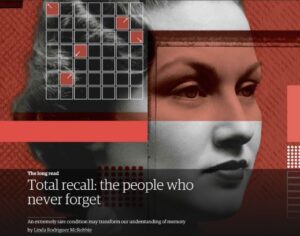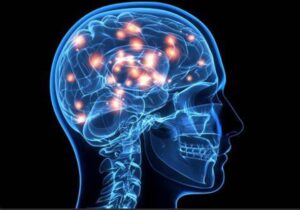
 Imagine being able to remember every day of your life, or maybe, not being able to forget any of it. Everyone is different, and the brain is quite mysterious. Some people have vague or no specific memories about their past, while others remember all the details of their lives. Some people can even give specific days, times, and weather conditions that were present at the time of a memory. Now, some people might call that a blessing, while others might see it as a curse. Either way, it is a bit of a novelty, to say the least. The condition is called Highly Superior Autobiographical Memory (HSAM), and as of 2017, fewer than 100 people were known to have the condition. The main characteristic of the condition is that the patient has a near-perfect memory for recalling dates and events. The scientific term for Superior Autobiographical Memory is Hyperthymesia. This form of memory is sometimes confused with Eidetic Memory, which is itself mistakenly associated with photographic memory. Superior Autobiographical Memory or Hyperthymesia is a confusing phenomenon, even for scientists.
Imagine being able to remember every day of your life, or maybe, not being able to forget any of it. Everyone is different, and the brain is quite mysterious. Some people have vague or no specific memories about their past, while others remember all the details of their lives. Some people can even give specific days, times, and weather conditions that were present at the time of a memory. Now, some people might call that a blessing, while others might see it as a curse. Either way, it is a bit of a novelty, to say the least. The condition is called Highly Superior Autobiographical Memory (HSAM), and as of 2017, fewer than 100 people were known to have the condition. The main characteristic of the condition is that the patient has a near-perfect memory for recalling dates and events. The scientific term for Superior Autobiographical Memory is Hyperthymesia. This form of memory is sometimes confused with Eidetic Memory, which is itself mistakenly associated with photographic memory. Superior Autobiographical Memory or Hyperthymesia is a confusing phenomenon, even for scientists.
The first person diagnosed with HSAM was Jill Price, who in 2000 emailed Dr James McGaugh, a professor in neurobiology and behavior at UC Irvine, about her memory problem. Strange that she called it a “memory problem” and not just an unusually good memory. Price wrote, “Whenever I see a date flash on the television…I automatically go back to that day and remember where I was, what I was doing, what day it fell on…” She described the experience as “nonstop, uncontrollable, and totally exhausting.” I think that part…especially the “totally exhausting” part, is something that most people wouldn’t even consider when it comes to memory, but then we have never been faced with a situation quite like that of Jill Price.
After receiving Price’s email, Dr McGaugh started researching the condition. Like most of us, it was something he had never given much thought to. His research took a long time, because information and case studies were pretty much non-existent, but in 2010, he appeared on 60 Minutes to discuss his findings. The 60 Minutes segment caused other people to reach out to him about their own version of the condition. Among the people who reached out to him was Joey DeGrandis, who had been aware of his near-perfect memory since he was 10. DeGrandis actually took a different approach to his situation than Price had. In fact, he treated his memory somewhat like a magic trick…even performing at a school magic show by accurately naming what day of the week any date in recent history fell on. He had previously considered his memory a novelty, he changed his opinion on it after hearing about other people with the condition and decided to take part in McGaugh’s studies.
The research into HSAM showed addition things that most of us wouldn’t thing about. One thing that the research showed was that many people with HSAM also suffer with obsessive traits. DeGrandis told Time he felt his HSAM contributed to his occasional bouts of depression and anxiety, as he struggles to let go of certain things. While many people think that HSAM is the same as having a photographic memory, that is actually not the case. Oddly, people with HSAM have no advanced memory when it comes to remembering things like names or faces. DeGrandis said in a 2017 interview with Time magazine, “I’m not great with names, or with mundane details like whether I brushed my teeth today or where I put my keys.”
I guess that we will never fully understand the human mind and memory, because while I can’t even begin to claim any link between HSAM and me, I find that I do quite well with names and faces, as well as remembering 
 computer procedures (once I’m shown one time), and a pretty good aptitude for medical procedure (at least as it applies to caregiving). I consider these things, at least a little bit like a photographic memory, since I can actually picture the computer screens in my head when I’m explaining steps to take with phones or computers to my family. The mind is an amazing thing, and I doubt if we will ever fully understand all it is capable of.
computer procedures (once I’m shown one time), and a pretty good aptitude for medical procedure (at least as it applies to caregiving). I consider these things, at least a little bit like a photographic memory, since I can actually picture the computer screens in my head when I’m explaining steps to take with phones or computers to my family. The mind is an amazing thing, and I doubt if we will ever fully understand all it is capable of.


Leave a Reply